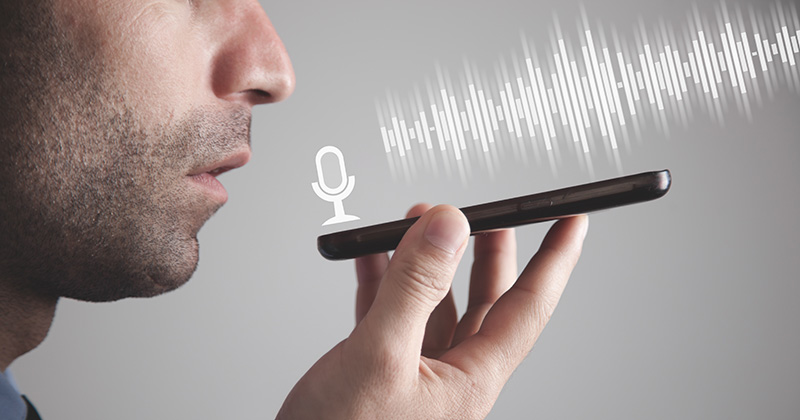Scribing Success - How AI Medical Dictation Enhances Patient Care

It would take a primary care provider (PCP) 26.7 hours each day to meet the demands of a 2,500-patient panel. In short, it’s impossible. Trying to keep pace can push stress levels sky-high and lead to burnout.
If this sounds all too familiar, you might be interested in AI medical dictation.
Powered by artificial intelligence (AI), this tool can help you reclaim precious hours. Less time with your head buried in paperwork means more time to focus on your patients.
In this article, we’ll explain what AI medical dictation is. We’ll connect the dots to show how it enhances patient care before explaining potential integrations with your electronic health records (EHR) system.
We’ll then discuss the all-important security and compliance considerations you’ll need to think about. Plus, we’ll share some strategies for training your staff on getting the most out of AI medical dictation.
Finally, we’ll wrap up with a few tips you can use to introduce medical dictation into your daily operations. Accuracy and efficiency await, so let’s get started.
What Is AI Medical Dictation?
AI medical dictation is a tool that converts spoken medical notes into text. It uses several technologies to recognize medical terminology and phrases, including:
- Natural language processing (NLP): NLP allows the AI to understand and process human language.
- Machine learning (ML): ML helps the AI improve its accuracy over time. It learns from corrections and adapts.
- Speech recognition: This converts spoken words into text. It uses algorithms to piece together speech patterns and transcribe them.
AI medical dictation helps you achieve a few different outcomes.
Its main purpose is to streamline the documentation process. Instead of manually writing down your notes during or after a patient visit, they are transcribed automatically in real time. This speeds up the creation of accurate medical records.
AI medical dictation also optimizes your workflows.
In a busy practice, this means you spend less time on paperwork and more time attending to patients. You can update patient records instantly after each visit. This means you never fall behind.
In addition, AI medical dictation improves accuracy. It helps prevent misunderstandings or the loss of crucial information. This outcome is critical in healthcare settings, where patient safety is on the line.
RELATED ARTICLE: Top Revolutionary Leaders in Healthcare AI to Watch

How AI Medical Dictation Enhances Patient Care
Quality patient care is integral to the success and reputation of your practice. It directly affects patient satisfaction and influences their healthcare outcomes.
AI medical dictation can help you deliver exceptional patient care consistently—even during peak times. Here’s how:
More Accurate Documentation
As we mentioned earlier, AI medical dictation precisely transcribes spoken medical notes. It captures the doctor’s words in real time. This means there’s less likelihood of misunderstandings and errors.
Accurate documentation is essential for making correct diagnoses and developing effective treatment plans.
When patient records are error-free, you can provide better follow-up care. You can make informed decisions that empower patients to achieve their goals.
Increased Efficiency
Forget spending hours upon hours typing up your notes. This work is tedious, and you have better things to do with your time.
AI medical dictation speeds up the documentation process. You can dedicate more time and mental bandwidth to diagnosing and treating patients.
More Personal Patient-Doctor Interaction
Your relationships with your patients are important. You want to create a space where they feel comfortable and heard. AI medical dictation can help.
Instead of casting your eyes down toward your notepad or keyboard, you can maintain eye contact. The quality of your interactions improves, and this cultivates a sense of trust.
When patients feel valued, they become more engaged. They might stick to their treatment plan and follow up on care.
According to one study:
“Patients as active partners in their personal healthcare are key drivers to reducing costs, securing an effective usage of resources, and ensuring patient-provider satisfaction."
In other words, a win for patient engagement is a win for your practice.
FROM ONE OF OUR PARTNERS: 5 Ways Healthcare Technology Helps Improve Patient Engagement
Real-Time Updates and Access
AI medical dictation allows for real-time updates to patient records. This means that any changes or additions to a patient’s medical history are immediately available to the healthcare team.
When all team members have current information, care is better coordinated. This is particularly important when managing chronic conditions.
Integrating AI Medical Dictation with Your EHR
EHR software is a digital system for managing patient information. It stores patient data, including:
- Medical history
- Diagnoses
- Treatment plans
- Immunization dates
- Allergies
- Radiology images
- Laboratory test results
EHRs are a must in modern medical environments. They:
- Centralize patient information
- Enable seamless communication
- Improve accuracy
- Ensure compliance
You can integrate AI medical dictation with EHR systems like DrChrono to streamline your documentation process.
For example, let’s say you are in an appointment with a patient. You can dictate the patient’s symptoms, diagnosis, and treatment plan.
The AI transcribes your words in real time. It then populates the corresponding fields in the EHR.
Some EHRs offer customizable templates that work alongside AI dictation. You can create templates for different types of visits or conditions. These might include new patient consultations or follow-up appointments.
What’s more, changes or additions made through AI dictation are immediately updated in the EHR. The patient record is always up-to-date.
For example, if you adjust a treatment plan during a visit, the EHR reflects this change instantly.
RELATED ARTICLE: DrChrono Teams with DeepScribe to Automate Medical Note Taking in EHR Through Artificial Intelligence Technology

Security and Compliance Considerations
Integrity is central to what you do. That’s why upholding your compliance with laws and regulations is essential. So, too, is protecting your practice’s and patient’s data.
Before you adopt any new technology, you must consider how it stacks up when it comes to security and compliance. AI medical dictation is no different.
Here are some questions to ask:
Is the Data Encrypted?
All patient data collected by AI must be encrypted in transit and at rest. This process protects sensitive information from unauthorized access.
This is especially important when transferring data between devices or software, like your EHR. It’s also critical when storing data in the cloud.
Make sure your AI medical dictation provider uses strong encryption standards. Keep an eye out forAES-256, for example.
Is It HIPAA-Compliant?
Your AI medical dictation system must comply with HIPAA regulations. This includes maintaining the confidentiality, integrity, and availability of patient data.
How Does It Handle Consent?
It’s best practice to obtain written consent from your patients before using AI medical dictation. This consent should be documented in their medical records.
How Accurate Are the Notes?
It’s you—and not your AI dictation provider—who is responsible for the accuracy of your medical records.
Find out how accurate the dictation is before you settle on a provider. Usually, this will be expressed as a percentage. The AI tool might be 98% accurate, for example.
You might like to request a free trial so you can test out the tool before you commit.
In addition, it’s smart to double-check the dictation for errors before it’s saved. Build this review process into your workflow.
How Does the Tool Store Data?
The AI medical dictation provider should have clear policies on data storage and access. It’s worth reading these.
You might also ask whether patient data is stored on servers located within the country.
RELATED ARTICLE: Drive Revenue and Improve Patient Care with a Fully-Integrated EHR

Training Your Medical Staff to Use AI Dictation
Your medical staff might be hesitant to adopt a new technology. They might be unsure how to use it, and this can take away from your return on investment (ROI).
However, the right training can encourage adoption. It can give your team the know-how needed to reap all the benefits of AI medical dictation.
3 Strategies for Team Training
Not sure where to start? Here are three ways you can engage your team:
- Hands-on training sessions: Allow them to practice dictation in a controlled environment. Walk them through the steps and features. Create life-like scenarios that mimic real patient interactions. That way, they can feel more comfortable and confident with the technology.
- Regular refresher courses: Schedule ongoing training to keep staff updated on new features and best practices. Address any issues or questions that come up.
- User guides: Leverage the resources offered by your provider. Staff can turn to user guides and manuals to double-check a process or functionality in their own time.
In addition to these strategies, add in a feedback mechanism. Give staff a way to report issues or make suggestions.
Adding AI Medical Dictation to Your Healthcare Practice
Are you ready to save time and streamline your documentation workflows? Here are three ways you can get started with AI medical dictation:
- Research reputable AI dictation providers. Look for providers with experience in medical transcription. Make sure they comply with HIPAA regulations. Check reviews and request a demo to see the system in action.
- Integrate the technology. Add the AI dictation software on your devices. Integrate it with your existing EHR system.
- Schedule staff training. Set a time for hands-on training. Check that everyone understands how to use the system to its full potential. Listen to staff concerns and suggestions. Make adjustments to improve your dictation processes.